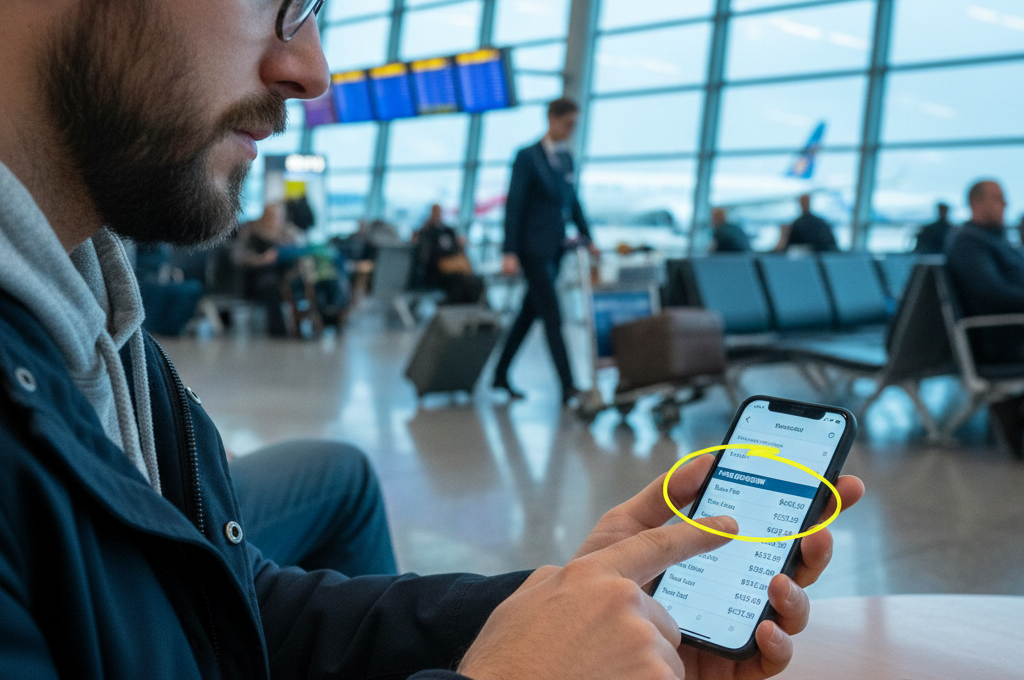Most travellers plan their trips by comparing flight prices, checking luggage allowances, and looking for discounts. But what many people don’t notice are the hidden airport fees quietly added to their journey. These extra charges may look small at first, but together they can easily increase your travel cost by thousands. In 2026, airports across the world have updated their fee structures — which means being aware of these charges can help you save more on every trip. Here’s a complete, easy guide to understand hidden airport fees and how to avoid them smartly.
1. Airport Development & Infrastructure Fee
Most passengers don’t realise that a big chunk of their ticket price includes an airport development charge. This fee is added to help airports upgrade terminals, expand runways, or improve security systems. Since it’s automatically added to your ticket, you barely notice it.
How to avoid it: Fly from airports with lower development charges or look for airlines that operate from alternate terminals with reduced fees.
2. Excess Baggage Fee
This is one of the most common hidden airport fees. Even 1–2 kg over the limit can cost you a lot, especially on international flights. Airlines charge these fees at the airport, and the rates are usually higher than pre-booking online.
How to avoid it: Always weigh your luggage at home, use packing cubes, and pre-purchase extra baggage during ticket booking.
3. Visa-on-Arrival Processing Fee
Many travellers choose visa-on-arrival for convenience, but they forget that airports charge separate processing fees. This includes document verification, digital photo capture, and processing service charges.
How to avoid it: Check if e-visas are cheaper for your destination. They are not only cost-effective but also save time.
4. Airport Security Fee
Security fees have steadily increased over the years due to advanced scanners, security staff expansion, and upgraded systems. Although unavoidable, the fee amount varies depending on the airport.
How to avoid it: Choose airlines that operate from low-cost terminals. Budget terminals usually charge lower security fees.
5. Airport Shuttle & Transfer Fees
Airport taxi fees, shuttle charges, and city transfers are often much higher when booked on the spot. Many travellers end up paying premium pricing without realising it.
How to avoid it: Compare airport transfers online, use metro or airport buses, or pre-book rides at fixed prices.
6. Convenience Fee for Online Check-in
In 2026, some airlines have started adding a “convenience fee” for selecting seats or printing boarding passes during online check-in — yes, even budget airlines.
How to avoid it: Skip seat selection unless necessary. Check in during the free window and choose auto-allocated seats.
7. Duty-Free Price Markups
Duty-free doesn’t always mean cheaper. Many products are marked up higher than city prices.
How to avoid it: Cross-check prices online before buying anything at the airport.
8. Hidden Food & Beverage Charges
Airport restaurants often add service fees on top of already expensive food prices.
How to avoid it: Carry your own snacks (where allowed) or eat before you reach the airport.
Smart Tips to Avoid Hidden Airport Fees in 2026
-
Reach early to avoid late check-in penalties
-
Travel light to save on luggage fees
-
Use airline apps to track charges
-
Compare airports — some countries have drastically lower fees
-
Always read your fare breakdown before booking
Conclusion
Hidden airport fees may feel unavoidable, but with the right strategies, you can reduce almost all of them. By planning smarter and staying aware of how airports structure their pricing, you can travel more confidently — and more affordably — in 2026. A little awareness today can save you a lot on your next international trip.






Leave a Comment